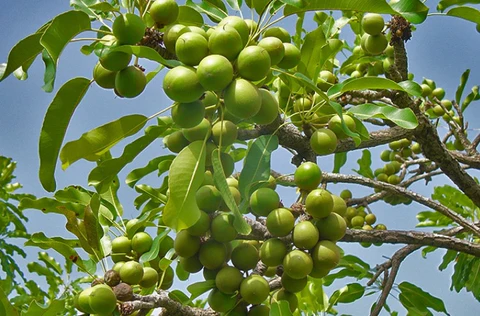Nutrition
Strong Government Leadership: The necessary ingredient in Ghana’s nutrition response

When we hear the word “malnutrition,” we often think of hunger. However, Ghana’s nutrition crisis is more complex and far-reaching than just empty stomachs. Today, thousands of children under five suffer from wasting (six per cent), stunting (18 per cent), and underweight (12 per cent). At the same time, more than 40 per cent of women of reproductive age are anaemic, and diet-related diseases are rising rapidly in urban areas.
What lies at the heart of this complex challenge? According to research, one powerful solution is being overlooked: strong and sustained government leadership.
Ghana already has policies in place, including the National Nutrition Policy, the School Feeding Programme, and Food-Based Dietary Guidelines, among others. However, these frameworks are only as effective as their implementation. Unfortunately, gaps in financing, outdated guidelines, fragmented coordination among ministries, and weak accountability systems continue to undermine progress.
A key opportunity for action lies in the USD 6 million annual pledge Ghana made at the 2025 Nutrition for Growth (N4G) Summit in Paris. This commitment earmarked for essential nutrition commodities like supplements and therapeutic foods must move from pledge to practice. That means establishing a dedicated nutrition budget line, empowering government agencies to coordinate nutrition more effectively across sectors, and ensuring local governments are equipped to deliver nutrition interventions.
Other countries are leading the way. In Kenya, a dedicated parliamentary nutrition caucus is driving reforms. In Peru, legal frameworks protect nutrition budgets from political shifts. Ghana has the technical know-how and the institutional platforms; it now needs the political courage to act.
When the government prioritises nutrition, the ripple effects are enormous: better health outcomes, improved school performance, higher economic productivity, and reduced national health costs.
It’s time to treat nutrition not as a “social issue,” but as a strategic investment in Ghana’s future.
Feature article by Women, Media and Change (WOMEC) under its Nourish Ghana: Advocating for Increased Leadership to Combat Malnutrition project.
Nutrition
Benefits of sheabutter

Shea butter is a fatty substance derived from the nuts of the African shea tree. Sheabutter has gained popularity in the Western world as a natural alternative to traditional beauty products and as a food ingredient.
Unrefined, raw shea butter is the best option for food preparation as it has not been treated with any chemicals and retains its natural properties.
-Shea butter is also a good source of vitamins and minerals. It is particularly rich in vitamin A and vitamin E, which are both known to be beneficial for the skin. Vitamin A is essential for maintaining healthy skin and eyes, while vitamin E is an antioxidant that can help to protect the skin from damage caused by UV rays and environmental toxins. Shea butter also contains small amounts of other vitamins and minerals such as vitamin K, vitamin F, and zinc. Shea butter is a good source of monounsaturated and polyunsaturated fats.
-Traditionally, Shea butter is used in cooking. It is used as a cooking oil, as well as an ingredient in soups, stews, and porridges. Another way Shea butter is consumed is as a spread on bread and as a dip for vegetables. It is also an ingredient used to make a type of fermented porridge called koko, which is made with millet, sorghum, or other grains and flavored with spices, peanuts, and Shea butter. Additionally, Shea butter is used in some traditional confections and candy sweets.
– Shea butter has been traditionally used to treat a variety of skin conditions such as eczema and psoriasis. Its anti-inflammatory properties may also be beneficial for those with joint and muscle pain.
-Eating shea butter may also benefit weight management as it is relatively low in calories and high in healthy fats. It can help to keep you feeling full and satisfied, which can help to prevent overeating and weight gain.
-As previously mentioned, Shea butter is also rich in vitamins and nutrients. It is a great source of Vitamin E that helps maintain healthy skin and eyes, and strengthen the body’s immune system against illness and infection.
Join our WhatsApp Channel now!
https://whatsapp.com/channel/0029VbBElzjInlqHhl1aTU27
Nutrition
Nutrition as smart economics: Why Ghana must invest in it
When national development is discussed, the spotlight often falls on roads, factories, employment, and technology. Yet, one of the most powerful engines of economic growth remains overlooked: nutrition. A well-nourished population is not just healthier, it is smarter, more productive, and better positioned to drive Ghana’s transformation.
The hidden cost of malnutrition
Malnutrition is not only a public health crisis; it is a silent drain on the economy. According to the Ghana Demographic and Health Survey (GDHS 2022), countries lose up to 3percent of GDP annually due to poor nutrition. For Ghana, this means billions of cedis lost every year through lower productivity, weaker educational outcomes, and soaring healthcare costs. Malnutrition robs the nation of its human capital; the very foundation of sustainable growth.
Nutrition: An investment, not an expense
The evidence is clear: nutrition delivers some of the highest returns on investment of any development intervention. Every cedi spent on nutrition generates multiple benefits:
Higher productivity: Healthy, well-fed workers contribute more to the economy.
Better education outcomes: Children who eat balanced diets learn faster and perform better in school.
Reduced healthcare costs: Preventing malnutrition lowers the burden of disease and reduces long-term treatment expenses.
In short, nutrition is not charity, it is smart economics. Ghana cannot afford to postpone action.
Why Ghana must act now
Ghana has already made bold commitments at the 2025 Nutrition for Growth (N4G) Summit, pledging to halve child stunting and reduce anemia in women. But without adequate financing and political will, these promises risk becoming empty words.
Nutrition interventions such as exclusive breastfeeding promotion, school feeding programmes, and micronutrient supplementation require sustained investment. Without dedicated budget lines and accountability measures, the cycle of malnutrition will continue to undermine development.
A call for leadership and accountability
Nutrition must be placed at the heart of Ghana’s development strategy. Policymakers, parliamentarians, and development partners need to treat nutrition with the same urgency as infrastructure or energy. Civil society organizations, the media, and citizens must also play their part by demanding accountability and ensuring that nutrition remains high on the national agenda.
The truth is simple: a nation cannot grow on an empty stomach. By investing in nutrition today, Ghana secures a healthier, wealthier, and more resilient future. A nourished Ghana is not just a healthier nation; it is a stronger, more prosperous one, ready to achieve its vision of inclusive growth.






